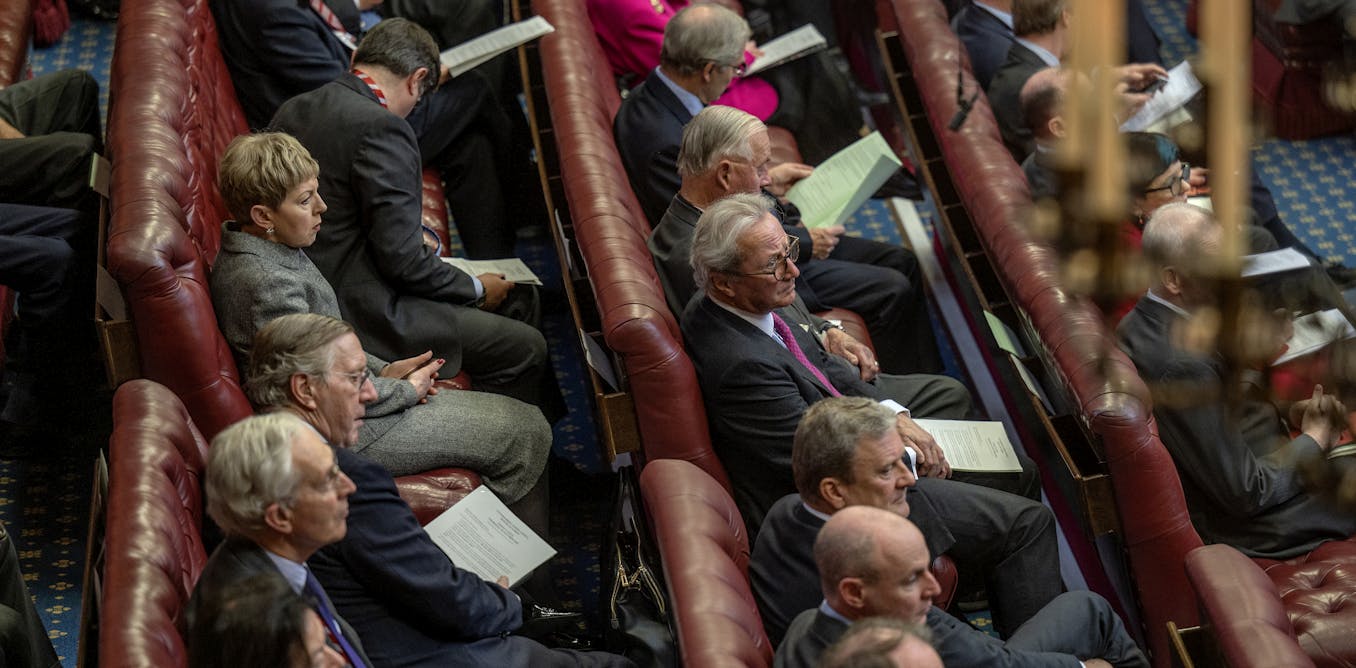More than 140,000 pupils in the UK are absent from from school more than 50% of the time: more than double the number from before the pandemic.
Not being in school matters – and not only because pupils miss out on learning. Teachers play an important role monitoring the welfare of their students, and if young people are on the streets rather than at school they are also more at risk of harm and exploitation.
Absence rates have prompted increasing concern from the government. Up until now, measures to tackle absence have focused on blaming parents and issuing fines: more than a third of a million so far.
More recently, the government has acknowledged the role played by inadequate support for special needs and disability as well as the impact of mental health on pupil attendance. They have responded by increasing the number of “attendance hubs”: collaborative groups led by senior teachers in schools that have good attendance with the aim of sharing effective strategies with others.
But very little attention has been paid to what is actually happening in schools. Education needs to be more aligned with healthy child development, children’s interests, and the importance of relationships for wellbeing.
Children and teenagers are naturally curious and keen to discover the world around them. They want to be active participants in their own learning. And self-determination – being able to make your own decisions rather than being controlled by others – is one of the major pillars of wellbeing.
Exam factories
But pupils in many schools have very little in the way of agency. They are told what to do and how to do it. Teachers feel pressure to “teach to the test”, leaving pupils few options to follow their interests, let alone passions. As teenagers get older, the more bored and disengaged they may become in school.
One way of getting students back to school and engaged in learning is to give them more of a voice and increased choice in what they learn. Schools need a broader curriculum that promotes learning about the world because it is fascinating, not just to pass exams. But this will not happen while exam results and league tables dominate education.
Ground Picture/Shutterstock
What’s more, schools appear to be increasingly resorting to punitive approaches to manage student behaviour.
Students may face discipline for not having the right equipment, being late, talking out of turn or in the corridor and uniform infringements. At St Ivo’s Academy in Cambridgeshire parents have set up their own forum to express concerns, especially about how discipline is affecting their children’s mental health.
Anxiety, depression and other negative emotions impede learning. Young people need to feel safe to focus well. Many do not. The organisation Not Fine in School supports families whose children are experiencing “barriers” to attendance. Their Facebook group has 37,000 members. It illustrates the many ways pupils can be scared, confused, embarrassed and sometimes panic-stricken in school.
As one mother writes on the Not Fine in School site:
These past three years have been the hardest thing I have ever had to go through. Watching my vibrant, charismatic, full of life child, become a shadow of himself has been heartbreaking.
Instead, schools should be promoting the positive. Among other things, this means welcoming students, being kind, showing interest and taking account of their context.
Doing things differently
Conversations with children should identify and acknowledge the qualities they are developing and the progress they are making, rather than pointing out deficits and negatives. It also means students feeling they belong, that they matter, and that they are valued and included.
Positive emotions and mental health are strengthened by free play and playfulness. However, experiences that might enhance this in state schools, such as art, music, drama, dance and opportunities to have fun together, are under threat in state schools.
It does not have to be this way. Estonia has one of the best education systems in Europe: teachers have high autonomy in how they lead classes and children feel happy and safe in school. The school system in England could learn from the independence headteachers are granted to set the curriculum, a focus on wellbeing and no schedule of school inspections.
When policies and practices in state education aim to bring out the best in every child and prepare them to be active citizens of the future, maybe kids will actually want to come to school.
When wellbeing is at the core of a school’s endeavours, children will have better mental health and resilience, greater engagement with their learning and better results.

The post “School absence rates have rocketed – the whole educational experience needs to change” by Sue Roffey, Honorary Associate Professor, Department of Clinical, Educational and Health Psychology, UCL was published on 02/14/2024 by theconversation.com




































